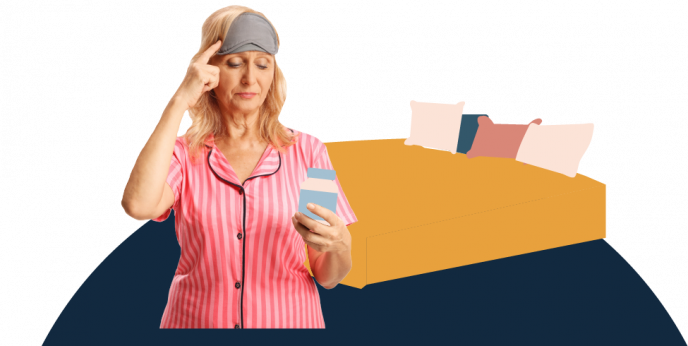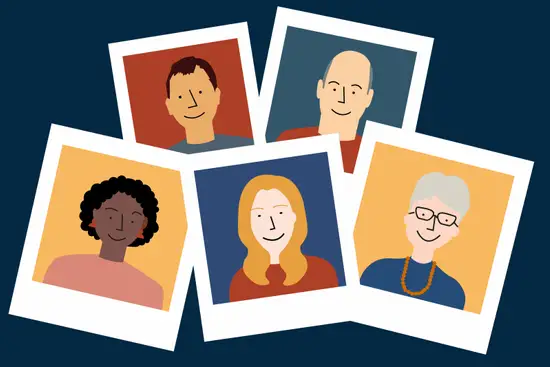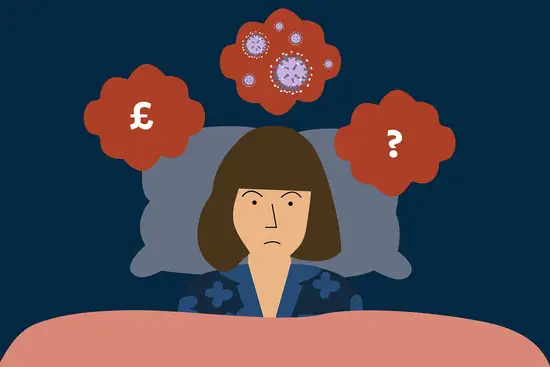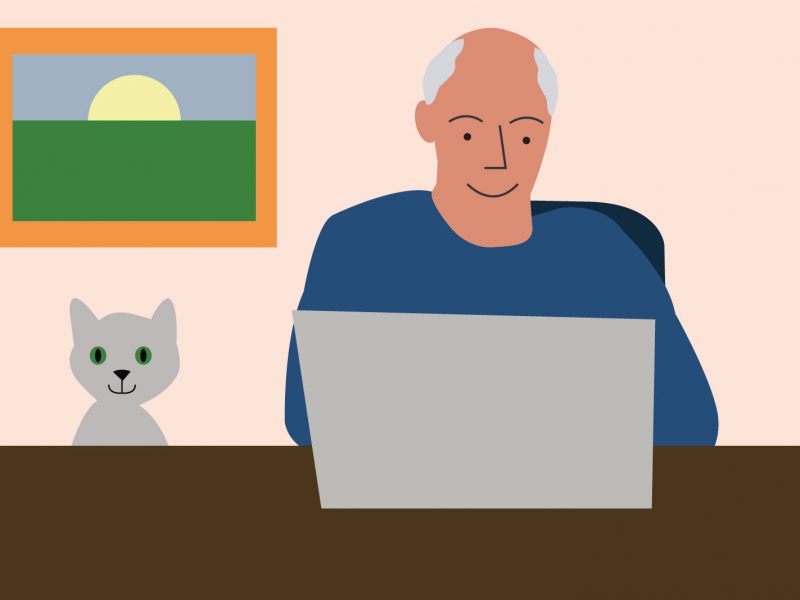Doxepin — Key points
Doxepin has been used to treat depression for decades but, over recent years, has also gained popularity as an insomnia treatment. But what is it, how does it affect your sleep and is it the best option for you if you’re sleeping badly?
That’s what we’re going to find out.
Doxepin’s just one of the many medicines for sleep that you could be recommended by your healthcare professional, so we want to make sure you have everything you need to make an informed choice when it comes to resolving your individual sleep problems.
That’s why in this article we’ll take an in-depth look at doxepin and examine exactly why it’s used to treat insomnia and whether it could improve your sleep. We’ll cover:
- what doxepin is
- whether doxepin can help you sleep
- what side effects you could experience when taking doxepin
- whether there’s an alternative to taking sleep medication if you want to sleep well each night.
What is doxepin?
Doxepin is a tricyclic antidepressant (TCA), a class of drugs that also includes amitriptyline. These types of antidepressants were some of the earliest developed and doxepin was first licensed all the way back in 1969.
Since the 1970s, newer classes of antidepressants have been introduced, including:
- selective serotonin reuptake inhibitors (SSRIs)
- serotonin and norepinephrine reuptake inhibitors (SNRIs).
Since these newer forms of antidepressants became available, doxepin has become less frequently used to treat depression as these newer drugs were considered to come with fewer side effects and a much lower risk of fatal overdose.
But what about when it comes to using these drugs as a sleep medication?
Doxepin was first approved as an insomnia treatment by the FDA in the USA in 2010, under the brand name Silenor.1 This product uses a much lower dose than when doxepin is used to treat depression.
And unlike most sleeping tablets, doxepin isn’t a controlled substance. This means it has been judged to have a lower risk of being misused than other sleeping tablets.
So, if doxepin was developed as an antidepressant, why is it used for sleep?
Let’s find out.
Want a drug-free solution to better sleep?
Doxepin could offer you relief from your sleeping problems, but it won’t get to the bottom of what’s causing your poor sleep. Our highly trained sleep team can help you pinpoint what’s keeping you awake and give you the keys to retrain your mind and body for better sleep long-term.
How does doxepin work?
Doxepin is a TCA, but what does this actually mean? To understand how doxepin works, let’s first take a look at what TCAs are and their effects on the body.
Neurotransmitters are chemical messengers that carry information and help regulate different functions around the body. TCAs are thought to act on at least five different neurotransmitter pathways in the body.2
Doxepin has a particularly strong effect on the antihistamine pathway. It acts in the same way as pure antihistamines. These are the types of drugs used to treat:
- allergies such as hayfever
- itching and swelling caused by insect bites, stings and nettle rash.

Some antihistamines are known to cause sedation. Because of this, several are used in over-the-counter sleep aids.
Doxepin has a similar effect on histamine, blocking its wake-promoting effects. This led to the idea that doxepin’s potent antihistamine effect could be used to tackle poor sleep.
Although other TCAs such as amitriptyline, have a similar effect at low doses, Doxepin is the only TCA to be approved for the use in insomnia, with a number of studies supporting its use as an insomnia treatment.3 4 5
Doxepin for sleep
Doxepin, under the brand name Silenor, was first approved to treat insomnia by the FDA in the USA in 2010.1
Doxepin isn’t licensed in any other countries as a treatment for insomnia.
To understand why this is the case, we first need to take a look at the nature of insomnia in a little more detail.
Types of insomnia
Did you know that there are three different types of insomnia? The amount of people who have each type is roughly equal and it’s possible to experience a combination of them at once. They are:
- sleep-onset insomnia, when you find it difficult to fall asleep
- sleep-maintenance insomnia, where you find it hard to stay asleep
- early morning waking, where you wake up earlier than you’d like and can’t get back to sleep.
Most sleeping pills address sleep-onset insomnia, helping you to fall asleep faster. They may also help you sleep through the night but this depends on their duration of action.
What’s a duration of action?
A drug’s duration of action is the time that it continues to exert its effects in the body. So sleeping pills with a long duration of action might help you sleep through the night but will still be trying to put you to sleep when it’s time to get up, eight or so hours later.
This can lead to unpleasant, hangover-like effects, and it can make going about your day much harder. These are common with the use of benzodiazepines such as temazepam.
On the other hand, you also have drugs like zolpidem and zopiclone, which are known as ‘z’ drugs, and have a much shorter duration of action. This means you’re less likely to feel the effects once you wake in the morning. But it also means that their effects can run out in the night and you find yourself awake in the small hours.
While most sleeping pills are designed to help you fall asleep quicker, so people who experience sleep maintenance insomnia may not find these drugs effective.
What’s interesting about doxepin is that, unlike most other sleeping pills, it tends to be of more benefit to people who have sleep-maintenance insomnia and it does this without impacting you the following day.
Studies have shown small to medium improvements on sleep maintenance (how often people woke during the night) and sleep duration (total sleep time). A review of these studies also found that there was no significant residual next-day effect. A few studies within this review also found that doxepin had some subjective benefit for the time it took to fall asleep.6 7
So doxepin may improve some areas of sleep but it very much depends on your individual sleep problems whether you’d see any benefits or not.

Doxepin dosage for sleep
The recommended dosage for treating insomnia is 3mg or 6mg, taken once daily within 30 minutes of bedtime. In the elderly, it’s recommended to start at 3mg per day.
Multiple studies have shown that at doses of 3 and 6mg of doxepin can help people sleep, at least in the short term.3 4 5 8
While side effects at these lower doses above are thought to be minimal, they can still occur so it’s worth being aware of them. Let’s take a look at the possible effects when taking at the lower dosage for sleep now.
Doxepin side effects
While at the higher doses used for depression doxepin has a number of side effects, at the lower doses used for insomnia there are far fewer side effects. The two main ones to be aware of are nausea and dizziness.9
Is doxepin addictive?
Doxepin hasn’t been shown to be addictive. That said, as with many medications used for sleep there’s always the possibility that you can come to depend on taking doxepin for sleep, believing that it’s the only way that you’ll get a good night’s sleep.
In this instance, it could be your thought processes rather than the drug itself, that are having the most impact on whether you sleep or not.
Does doxepin cause withdrawal?
Unlike other sleeping pills there is little risk of experiencing withdrawal effects if you decide you want to stop taking doxepin. However, stopping any medications should be done in consultation with your healthcare professional.10
It’s also worth being aware that, as with all medicines for sleep, once you stop taking them your sleep problems might return.
Doxepin interactions
Doxepin interacts with a number of other medications. This means that doxepin may affect how the other drugs you’re taking behave in your body, or vice versa.
Interactions with more common medications are given below:
- cimetidine: a drug used to treat heartburn and peptic ulcers
- sedating antihistamines (such as those in products such as NyQuil and Nytol)
- other sleeping pills
- drugs used to treat an irregular heart rate
- other antidepressants, such as SSRIs
- certain antibiotics, such as erythromycin.9
You should also take care if you currently take any antidepressants in the class known as monoamine oxidase inhibitors (MAOIs). Due to the interaction between these drugs and doxepin, it’s advised that you avoid using doxepin if you’ve been taking MAOIs within the last 14 days.
So if you’re already on other medications, it’s important to check with your doctor if any of them are known to interact with doxepin.
Doxepin and alcohol
You should avoid drinking alcohol if you’re taking doxepin. This is because combining both will increase the sedative effects of each substance. Not only this, the combination of high doses of alcohol and doxepin has been found to increase the risk of fatal alcohol poisoning.11
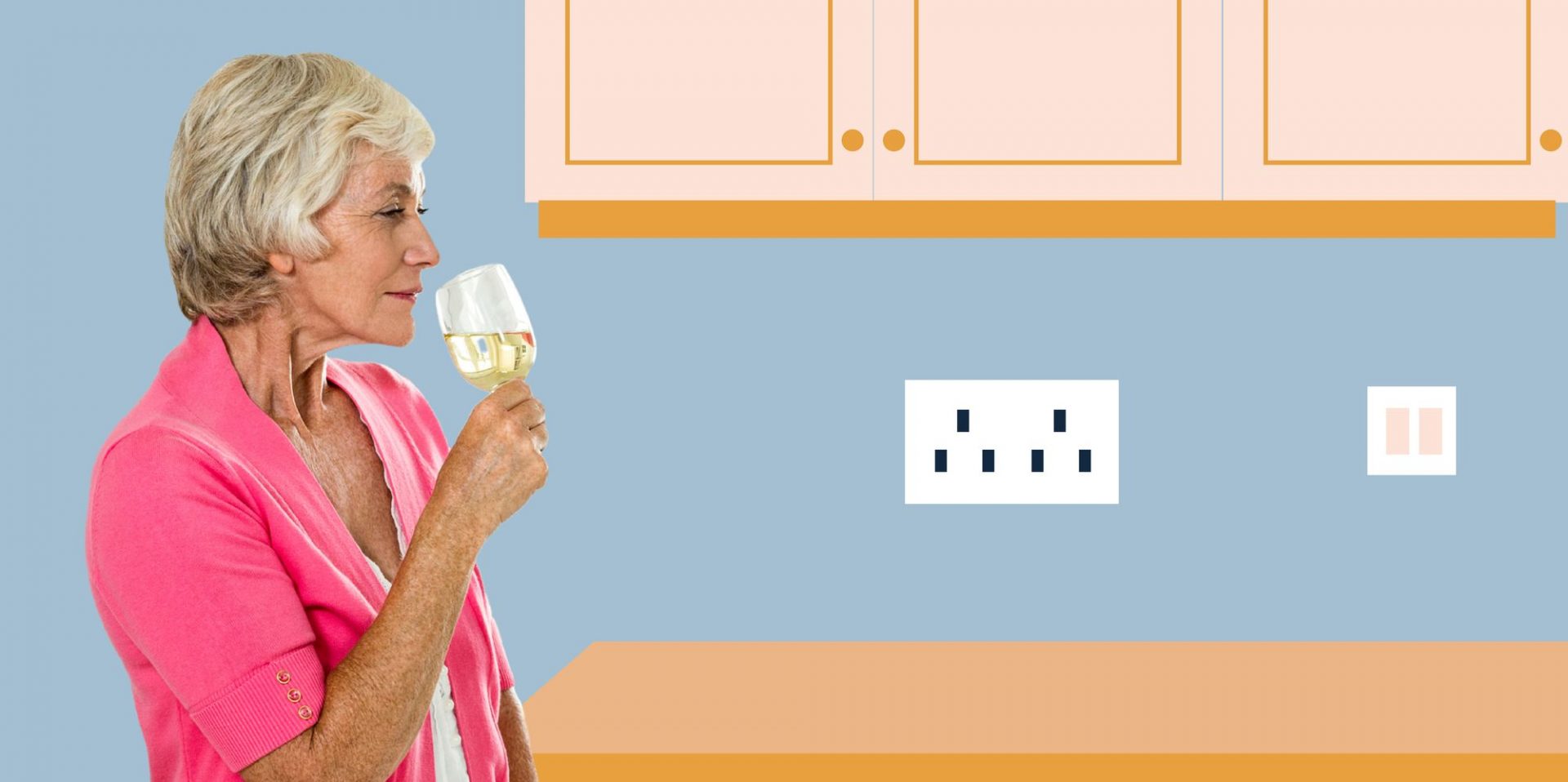
With so much to weigh up when it comes to taking doxepin for sleep, you may be wondering if there’s a way to improve your sleep without drugs, allowing you to enjoy a natural sleep?
In short, yes there is and Sleepstation can help.
Sleepstation can help you sleep naturally, night after night
At Sleepstation, we provide digital sleep therapy that gives you understanding and skills to take back long-lasting control of your sleep, without relying on medication.
Built on a foundation of Cognitive Behavioural Therapy for insomnia (CBTi) our multi-disciplinary team made up of dedicated sleep coaches, experts and therapists give you personalised advice and science-backed guidance that can help you identify thoughts and behaviours that may be getting between you and a good night’s sleep.
And where drugs only offer a short-term solution, CBTi’s proven effectiveness stretches far beyond the length of your therapy.
That’s because we’re not providing you with a sticking plaster that only tackles the symptoms of your poor sleep.
Week by week, you’ll build on your knowledge of sleep science, as well as the patterns, behaviours and thoughts that impact sleep. And with the tools and techniques you learn along the way, you’ll be able to make positive changes to your whole approach to sleep that you can maintain for months or years to come.
So if you’re ready to start taking back control of your sleep, the first step is to get signed up with our digital sleep clinic. Getting started is straightforward and easy, simply fill in our short questionnaire. Once complete, you can start looking forward to the natural, refreshing sleep that you deserve, without the need for medication.
Summary
- Doxepin is an antidepressant that, at a much lower dose than used for treating depression, is also used as an insomnia treatment.
- Doxepin may help with sleep-maintenance insomnia.
- Doxepin, as with any medication comes with a risk of side effects
- Sleepstation offers a long-term, natural solution to your sleep problems.
References
- Silenor (doxepin) FDA approval history. [Internet] Drugs.com. Available here. (accessed 11 Oct2023). ↩︎
- Moraczewski J, Aedma KK. Tricyclic Antidepressants. [Updated 2022 Nov 21]. In: StatPearls [Internet]. Treasure Island (FL): StatPearls Publishing; 2023 Jan-. ↩︎
- Krystal AD, Lankford A, Durrence HH, Ludington E, Jochelson P, Rogowski R, Roth T. Efficacy and safety of doxepin 3 and 6 mg in a 35-day sleep laboratory trial in adults with chronic primary insomnia. Sleep. 2011 Oct 1;34(10):1433-42. ↩︎
- Roth T, Rogowski R, Hull S, Schwartz H, Koshorek G, Corser B, Seiden D, Lankford A. Efficacy and safety of doxepin 1 mg, 3 mg, and 6 mg in adults with primary insomnia. Sleep. 2007 Nov 1;30(11):1555-61. ↩︎
- Katwala J, Kumar AK, Sejpal JJ, Terrence M, Mishra M. Therapeutic rationale for low dose doxepin in insomnia patients. Asian Pac. J. Trop. Dis. 2013 Aug 1;3(4):331-6. ↩︎
- Winkler A, Auer C, Doering BK, Rief W. Drug treatment of primary insomnia: a meta-analysis of polysomnographic randomized controlled trials. CNS Drugs. 2014; 28: 799–816. ↩︎
- Yeung W-F, Chung K-F, Yung K-P, Ng TH-Y. Doxepin for insomnia: a systematic review of randomized placebo-controlled trials. Sleep Med Rev. 2015; 19: 75–83. ↩︎
- Markov D, Doghramji K. Doxepin for insomnia. Curr Psychiatry. 2010 Oct 1;9(10):67. ↩︎
- Doxepin (insomnia). [Internet] Medlineplus.gov. Available here. (accessed 26 Apr2024). ↩︎
- Patel D, Goldman-Levine JD. Doxepin (Silenor) for insomnia Am Fam Physician. 2011 Aug 15;84(4):453. ↩︎
- Koski A, Ojanperä I, Vuori E. Interaction of alcohol and drugs in fatal poisonings. Hum Exp Toxicol. 2003; 22: 281–287. ↩︎
